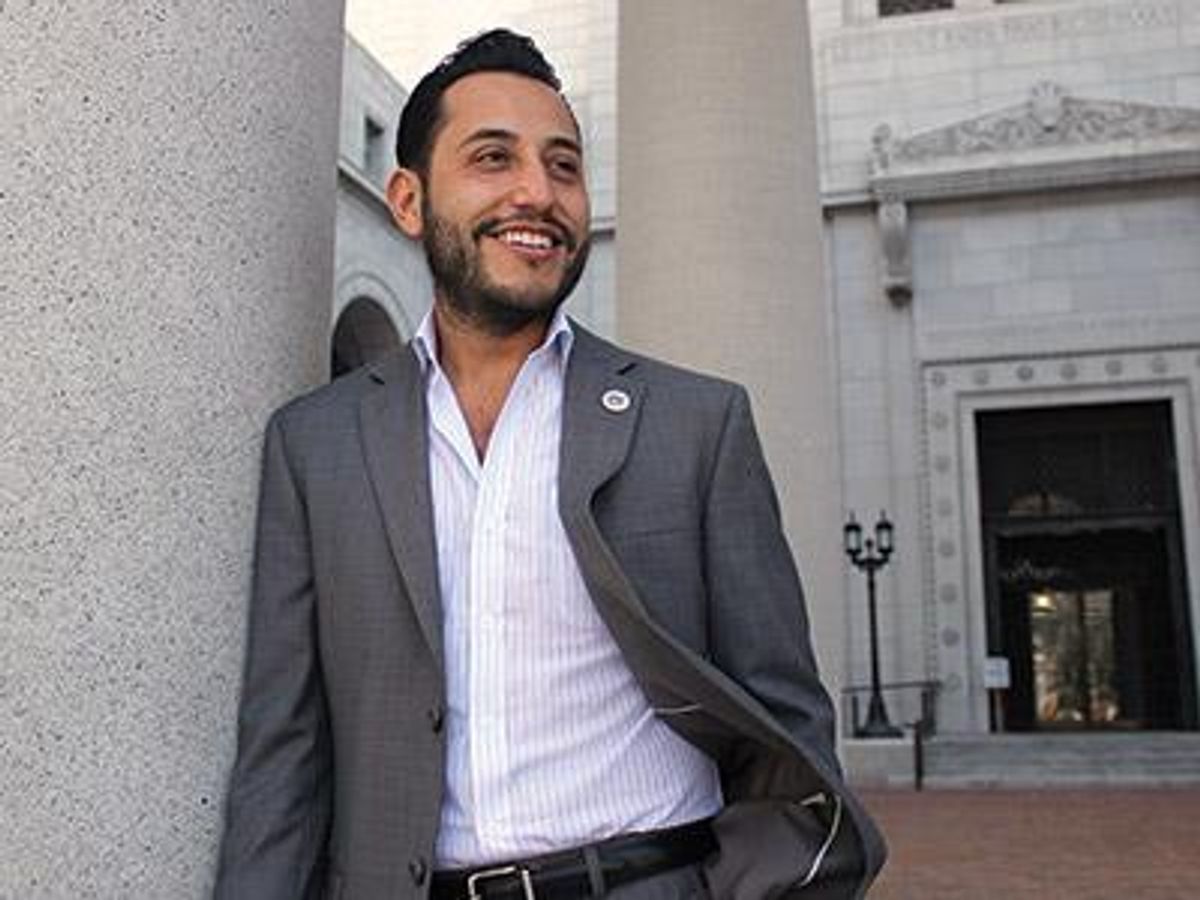When Fredy Ceja tested positive for HIV nine years ago, he didn’t run away from his diagnosis; in fact, he did the opposite. A Los Angeles native, Ceja dove head first into activism. He got a job at Bienestar, an organization that assists Latinos affected by HIV and AIDS. In 2009, Ceja was featured in the Soy/I Am video campaign, a partnership between the Kaiser Family Foundation and Univision aimed at reducing HIV
stigma among Latinos and putting a face on the disease. He also served on the California HIV/AIDS Planning Group, the Latino advisory board to the California Office of AIDS, the Los Angeles County HIV Commission, and the boards of the Wall Las Memorias Project and the Latino Equality Alliance, advocating for Latino LGBT rights.
Raised in a single-parent household with six siblings, Ceja earned enough money selling churros during lunch as part of a high school leadership club to visit Washington, D.C. That visit to “what seemed a foreign land” jump-started his love of politics. Soon afterward, he became the first person in his family to attend college, eventually graduating from California State University, Los Angeles.
He was hired as a senior field deputy for California Assembly member Gilbert Cedillo and served in the position until Cedillo was term-limited out of office at the end of 2012. The next year, Ceja went to work as a consultant to California State Senate President Pro Tempore Darrell Steinberg.
He was open about his HIV status early on, but it raised eyebrows in political circles, he admits. “People were respectful of the fact that I was open about it,” he recalls. “Even if they didn’t want to know about it, they had a minor understanding of HIV.”
It’s a bit different now. In part because, among other duties, he promotes HIV services, his status doesn’t raise any eyebrows among his coworkers. Today, Ceja’s mission is focused entirely on health, though it’s broadened beyond HIV. As the director of public affairs for St. John’s Well Child and Family Center, a nonprofit community health center serving low-income Los Angeles residents, Ceja deals with everything from diabetes to transgender health issues. His job is both “making sure people know what [St. John’s is]…and building capacity within the community for people to advocate for their own health.”
A typical day for Ceja now involves “a lot of meetings,” he says with a sigh and a laugh. His demanding job doesn’t leave much time for other pursuits, though Ceja is active with his Cal State alumni group and remains in a leadership position at the nonprofit cultural organization Plaza de la Raza, helping oversee services for needy preschool children. Although Ceja works with children in this capacity as well as at St. John’s, he doesn’t — yet — have any of his own.
“I have 23 nieces and nephews, so I’m busy in that regard,” the 35-year-old says. “I think my mom’s waiting for me to knock out a few kids.”
And as a busy professional, this public affairs director still finds time to talk about HIV, whether it’s at work, at Cal State events, or even at the barbershop. He admits that before he received his diagnosis, he too was ignorant about the realities of life with HIV. Now, so clearly focused on the present, Ceja marvels a bit recalling his reaction to finding out he was positive nearly a decade ago.
“[Before being positive] I didn’t even want to deal with the issue. When I became positive, it was just a complete 180-degree change,” he says. “I had to become a voice for people in my situation. I had to discuss what was going on in my community. I’m actually glad it happened because I felt so disconnected from my community. Now I choose to give back.”












































































